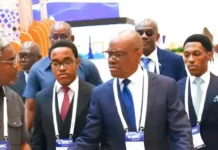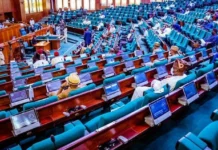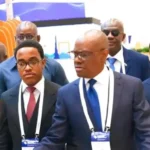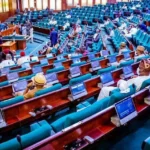The House of Representatives Committee on Petroleum Resources (Downstream) has reignited its inquiry into Nigeria’s troubled refinery operations and the controversial acquisition of OVH Energy by the Nigerian National Petroleum Company Limited (NNPCL).
This renewed investigation comes with the establishment of 10 Technical Sub-Committees aimed at addressing pressing challenges in the downstream oil sector.
Chairman of the Committee, Hon. Ikenga Ugochinyere, disclosed this to journalists in Abuja, noting that the sub-committees were created to support the main committee in its oversight duties. According to him, the goal is to fast-track investigations into pending issues, tackle new concerns threatening sustainability, and recommend solutions to strengthen the downstream sector.
“These Technical Sub-Committees shall work towards fast-tracking the investigation of pending referrals to the Committee, address crucial matters and developments that have arisen, which threaten sustainability in the downstream sector, with a view to making the downstream sector stronger and more viable,” Ugochinyere stated.
Sub-Committees and Their Mandates
The sub-committees will handle a wide array of issues, including:
- Alleged planned takeover of petroleum product transportation and retailing by Dangote Refinery.
- Turnaround maintenance and the current state of the nation’s refineries, with suggestions for improvement.
- The OVH acquisition by NNPCL and complaints raised by NNPC Retail staff, alongside a re-investigation ordered by the House.
- Complaints of lack of feedstock by modular refineries and the need to empower small-scale refinery operators.
- Recommendations for amending the Petroleum Industry Act (PIA) to strengthen the Nigerian Midstream and Downstream Petroleum Regulatory Authority (NMDPRA) and the sector at large.
Other focus areas include:
- Launching the first edition of the annual Downstream Petroleum Week event.
- Integrating artisanal miners into the refining value chain.
- Investigating the alleged abandonment of the Biomas Ethane project.
- Addressing ongoing fuel importation issues, protecting local refiners, and offering legislative solutions.
- Reviewing complaints from petroleum marketers, transporters, and unions concerned about the rise of monopolistic practices.
Spotlight on Dapo Segun’s Role
The probe is particularly significant as it revisits decisions made under Dapo Segun, the former Executive Vice President, Downstream, who currently serves as the Chief Finance Officer of NNPCL. During his tenure, the downstream sector reportedly experienced several crises, including persistent fuel scarcity, disjointed coordination, and strained relations among stakeholders.
Segun is also said to have overseen the now-contentious refinery rehabilitation projects and played a key role in NNPCL’s acquisition of OVH Energy. While the deal was initially presented as a strategic move to boost NNPCL’s market dominance, it is now facing intense scrutiny over its pricing, structure, and alignment—elements largely designed and pushed by Segun himself.
With the revived inquest and newly formed sub-committees, the House Committee is poised to dig deeper into these issues, aiming to drive reforms that could reshape the future of Nigeria’s downstream petroleum sector.










